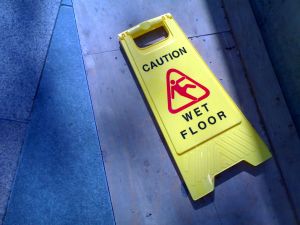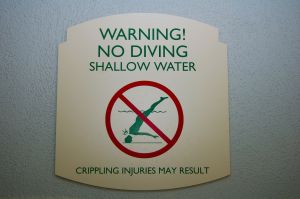 In Kentucky, people have slip & fall and trip & fall accidents in store everyday due to the negligence of store owners and store employees. These type of accidents and injuries are often avoidable if only the stores took proper precautions. These types of cases fall under Kentucky premises liability laws.
In Kentucky, people have slip & fall and trip & fall accidents in store everyday due to the negligence of store owners and store employees. These type of accidents and injuries are often avoidable if only the stores took proper precautions. These types of cases fall under Kentucky premises liability laws.
In Kentucky, store owners owe as duty to protect the public from dangers or hazards the store knows about or should know about. The main Kentucky court case on this issue of people slipping or falling in a business and injuring themselves is Lanier v. Wal-Mart Stores, Inc. In this case, the Court said that to maintain a lawsuit against a business for an injury involving a customer or person slipping or falling, while at the business, the injured party must prove:
(i) he or she slipped or fell on a substance or object while at the store, which was dangerous,
(ii) the substance or object was a substantial factor in causing the person to slip or fall, and
(iii) because of the substance or object, the business was not in a reasonably safe condition for the person or customer who slipped or fell.
Kentucky businesses have a duty to check the store premises for hazardous conditions, including spilled liquids and other slipper substances and clean such up or correct such before it causes a person to be injured.
A substance that could create an unsafe condition could be food, water, or some other fluid on the floor, including substances that have leaked out of products on the shelves. An object that could create an unsafe condition could be a product or part thereof on the floor, a problem or defect with the floor itself, a loose or broken step, a hole, or a loose or broken handrail. These examples are not all encompassing, as many other substances or hazardous conditions may qualify. When a person slips and/or falls due to an unsafe condition in a store, they have a right to be compensated for the injuries, the pain & suffering, lost wages, and medical bills, that result from such.
Continue reading →
 Kentucky Personal Injury Attorney Blog
Kentucky Personal Injury Attorney Blog





